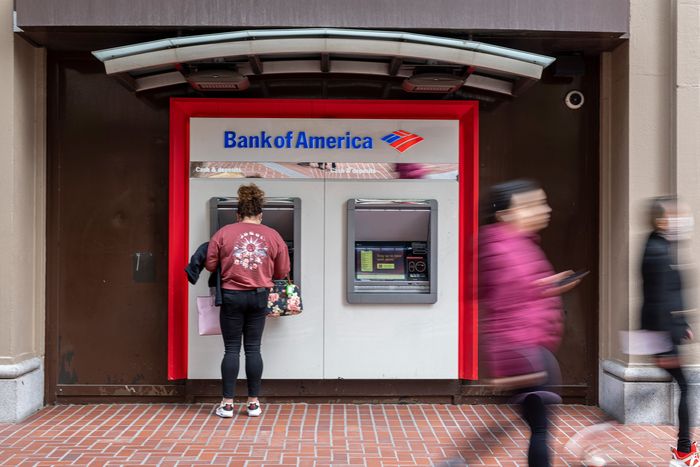Fears about the economic impact of the new Covid-19 variant have sent bank stocks on a roller-coaster ride, but they are still on track for their best year in more than two decades.
The KBW Nasdaq Bank Index, which measures the performance of big lenders including JPMorgan Chase & Co. and Bank of America Corp., was up nearly 44% in 2021 before Thanksgiving. At that rate, the KBW far outpaced the gains in the broader S&P 500 index, which was up about 25%.
But since Thanksgiving, when the Omicron variant emerged, the KBW fell as much as 8%, more than the drop in the S&P 500. Bank stocks rallied Monday and Tuesday, roughly halving their post-Thanksgiving losses.
Banks play a central role in the American economy, so the outlook for U.S. growth causes their stock prices to swing more than broader stock-market indexes.
Some investors say that the recent bout of volatility hasn’t changed their optimism. They are betting that the U.S. economy will continue to rebound, which will keep fueling bank shares. Banks plunged at the start of the coronavirus pandemic, but they have held up well since then, avoiding big losses in their consumer units and churning out profits in their Wall Street arms.
“It didn’t take much ingenuity to figure out that when the economy recovered, people would be interested in banks,” said Fredric E. Russell, founder of Fredric E. Russell Investment Management Co. in Tulsa, Okla.
Mr. Russell said he increased his clients’ holdings of Bank of America by about 50% a little more than a year ago. The bank’s stock has been on the upswing for most of the year, though it is down about 6% since Thanksgiving. Mr. Russell is concerned that the Omicron variant will impinge on economic growth, but hasn’t reduced his position in the stock.
Wells Fargo & Co., JPMorgan, Morgan Stanley and Goldman Sachs Group Inc. GS 2.78% followed a similar pattern. They all fell after Thanksgiving, but are still up more than the broader market this year.
Even with the recent declines, the KBW is up 38% this year through Monday. If that holds, it would be the index’s biggest annual gain since 1997.
Investors are trying to parse whether Omicron is just a temporary blip or a longer-term drag on the broader economy. They are also making bets on whether the highest inflation in decades will curb Americans’ ability to weather even a small downturn. That would challenge bank stocks, whose price gains already reflect the optimistic economic outlook, investors say.
Bank shares have taken a circuitous path since the pandemic began in the spring of 2020. Initially, fears of massive loan defaults forced the largest lenders to sock away tens of billions of dollars, which eroded their profits and depressed share prices. Shares rebounded after the banks said their loan portfolios were performing better than expected.
Now, though, banks are dealing with a different problem: lackluster loan demand. People stored up money when they had nowhere to go. Businesses borrowed by accessing the capital markets and taking forgivable loans from the government. Rock-bottom interest rates also ate into interest income.

Bank of America’s stock price has been on the upswing for most of the year, though it is down about 6% since Thanksgiving.
Photo: David Paul Morris/Bloomberg News
Recently, that has started to change. Net interest margins, the difference between what banks pay to borrow and what they earn from lending, rose in the third quarter from a record low, according to the Federal Deposit Insurance Corp. Bank executives say they are also seeing signs that loan demand is picking up.
For many investors, the question of whether bank stocks can keep up the momentum hinges on whether the Federal Reserve’s expected rate rises can tame inflation without curbing growth.
“People are still buying into financial stocks on the expectation that there is going to be a rising rate environment,” said Dave Wagner, a portfolio manager at Aptus Capital Advisors in Cincinnati.
For much of this year, he increased the amount of bank stocks in the actively managed exchange-traded funds he runs. He trimmed his holdings before Omicron hit.
Write to Ben Eisen at [email protected]
Copyright ©2021 Dow Jones & Company, Inc. All Rights Reserved. 87990cbe856818d5eddac44c7b1cdeb8








